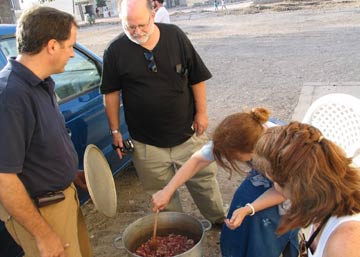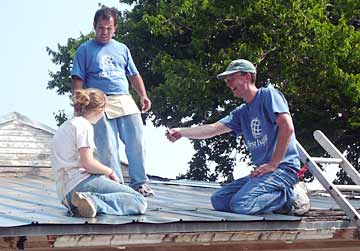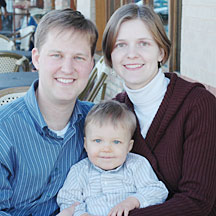Women in ministry report highlights progress & obstacles
Posted: 7/06/07
Women in ministry report
highlights progress & obstacles
By Robert Marus
Associated Baptist Press
WASHINGTON (ABP)—Moderate and progressive Baptists continue to grow in their theoretical support for women as pastors, but their churches remain far behind in practice. That’s one conclusion from the second annual “State of Women in Baptist Life” report, releasedby Baptist Women in Ministry.
Authors Pam Durso and Eileen Campbell-Reed released the report at the organization’s annual meeting, held in conjunction with the Cooperative Baptist Fellowship general assembly in Washington.
The authors used a wide variety of data to estimate that as many as 1,825 women have been ordained to the gospel ministry by churches of Southern Baptist heritage or that grew out of controversies in the Southern Baptist Convention.
That figure has grown substantially since 1997, when Baptist sociologist Sarah Frances Anders first estimated that more than 1,200 Baptist women were ordained in the South.
However, the report found, only about 600 women serve as senior pastors of Baptist churches in the United States, and most are American Baptist, Durso noted.
Durso said Baptist Women in Ministry had identified only 117 women serving as senior pastors of congregations of Southern Baptist heritage. And, she added, “Some of those are just recently discovered by our research”—not necessarily reflecting an overall increase in the numbers of senior pastors.
The report estimated that, “at best, 6.2 percent of Cooperative Baptist Fellowship churches and 9.1 percent of American Baptist Churches USA churches are pastored by women.”
Durso also noted that women “don’t fare as well (as men) in executive positions … in Baptist agencies.”
Those figures, Campbell-Reed said, showed that, “Despite some marginal increases, women are still not making dramatic advances. So, we wanted to check out attitudes.”
To do that, the authors devised a non-scientific online survey aimed at Baptist Women in Ministry supporters and others in moderate Baptist churches.
Campbell-Reid said 1,464 people responded to the survey. She and Durso compared its results to earlier, scientific surveys about societal attitudes toward women, beginning with a 1970 Harris poll.
The results showed dramatic increases in support for women in ministry. Even among respondents who said their churches’ primary identity was with the Southern Baptist Convention, about 80 percent supported women’s ordination.
In comparison, the study noted, a 1977 poll showed 80 percent of respondents disapproved of female ministers.
“Support and attitude is high, and yet practical reality remains very low,” Campbell-Reed said.
Baptist Women in Ministry officials have instituted several new programs and events to help raise congregations’ comfort level with the idea of having a woman in the pulpit. Rachel Gunter Shapard, the organization’s outgoing coordinator, said the group would make an annual tradition of its Martha Stearns Marshall Day of Preaching.
The event—named for an early Baptist woman preacher—will take place annually on the first Sunday in February, Shapard said. In it, congregations invite a woman to preach in morning worship services. Last year, 55 churches participated, and Shapard said they hope for more this year.
The group has also started an official registry of Baptist women who are working as pastors or in other professional ministerial roles, Durso noted. Records and statistics for female ministers in Baptist life are difficult to get because of the panoply of Baptist organizations and the lack of any central denominational or educational agency that keeps statistics on Baptists of Southern heritage.
The registry includes pastors and other females in ministerial roles who are not ordained, Durso said. As of May 10, 617 women had registered.
“We have a lot of work to do to get the word out about this registry,” she said. It is accessible on the organization’s website, www.bwim.info.
-30-



